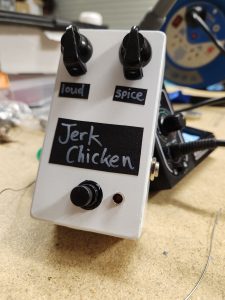 If you’re here, you’re probably thinking about taking up making guitar pedals as a hobby. Welcome!
If you’re here, you’re probably thinking about taking up making guitar pedals as a hobby. Welcome!
The world of guitar pedals is wide. Whether you’re looking for big distorted or fuzzy sounds, some modulation effects, or just a boost to your sound, there are a lot of pedals out there. Of course you can go out and buy these pedals from professional guitar pedal companies, but one of the biggest joys about making your own guitar pedals is not only do you get the satisfaction of creating something, but you also get the pedal that you want at the end.
Sure, this hobby isn’t for everybody, but if you’ve found yourself reading an article about why you should build guitar pedals, you’re probably somebody it’s for.
So here are my reasons to become a guitar pedal DIYer.
It’s Fun
This is the easiest and probably most obvious thing about making your own pedals: it’s fun. Unless you’re a pro at this, it’s a hobby, and there’s little point in pursuing a hobby if you don’t find it fun.
Yes, building guitar pedals can be aggravating at times, especially when it’s time to debug them, but overall, it’s a fun and satisfying pass time.
Personally, the fun part of making guitar pedals comes in a few varieties. Firstly, it’s fun learning about building techniques, guitar pedal components, and the next pedal you’re going to make. From there, it’s fun actually sitting down and making something; there’s something meditative about soldering everything in place. Then, when everything is boxed up and working, it’s just really satisfying.
You Can Build Your Favourite Pedal
Maybe you love a certain pedal that isn’t made anymore or it’s extremely expensive. Building your own is a way to have a clone of one of these peddles.
While you may not be able to get all the original parts of some of the older iconic pedals, you can usually come pretty close, making it so that your clone build sounds almost identical to a classic.
This gets me to the next part.
You Can Make Modifications
If you like a particular guitar pedal but want to give it something a little bit different, you can do that. Maybe you want to give it a little more bass or a little more twang? All you need to do is modify high and low pass filters. Maybe you really want to crank the gain. Play with different op-amps and transistors.
Although all of this is getting a bit more advanced, as you learn more about DIY pedal building, you learn what each component does and how it creates the unique sound of a given pedal. From there, it’s about making some educated experiments to create a truly unique sound.
Learn About Electronics
Electronics are a hobby all their own. Personally, my knowledge of electronics goes about as far as to what I can apply to making guitar pedals, but it’s gradually widened over time. Sure, my interest is still very focused on making pedals, but I have had some ideas for other projects.
Maybe you’ll start your electronics journey with guitar pedal making and move into something else in the electronics field. That’s cool too. It still has and gives the same amount creativity and satisfaction.
Expand Your Guitar Hobby
I would wager that the vast majority of people who build their own guitar pedals are also guitarist (or bassists). There’s probably quite a few who play another instrument but not the guitar. However, I’d assume that most people involved in this hobby got into it because of their love of the guitar.
The guitar is, I like playing the guitar. I also like the gear that goes along with the guitar. So my guitar pedal hobby is just a natural extension of my greater guitar based hobby. If you like guitars and want to do more guitar adjacent “stuff,” pedals may be a great way to go!
What Did I Miss?
This has been a pretty quick article, and one really intended to get people who may be a little bit interested in guitar pedals even more interested. Of course, these are my reasons for building pedals, and I’m sure others have their own reasons. If you’re keen, checkout my guitar pedal stripboard layouts for some inspiration.
If I missed anything, let me know.
Related posts:
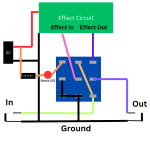 How To Wire A Guitar Pedal Foot Switch (3PDT)
How To Wire A Guitar Pedal Foot Switch (3PDT)
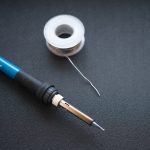 Gear You Need To Make Guitar Pedals
Gear You Need To Make Guitar Pedals
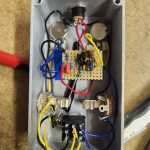 Big Guide To Debugging DIY Guitar Pedals
Big Guide To Debugging DIY Guitar Pedals
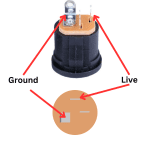 How To Wire A Guitar Pedal DC Power Jack
How To Wire A Guitar Pedal DC Power Jack
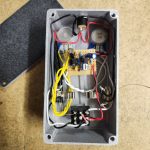 How To Wire Guitar Pedal Enclosures
How To Wire Guitar Pedal Enclosures
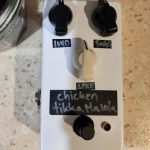 Is It Expensive To Make Your Own Guitar Pedals?
Is It Expensive To Make Your Own Guitar Pedals?
 How Do Guitar Pedal (And Guitar) Volume Knobs Work?
How Do Guitar Pedal (And Guitar) Volume Knobs Work?
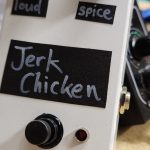 What Do Guitar Pedals Do?
What Do Guitar Pedals Do?
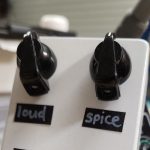 How Does A Drive, Gain, Or Distortion Knob Work?
How Does A Drive, Gain, Or Distortion Knob Work?
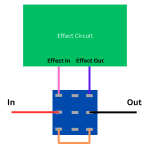 What Is True Bypass In Guitar Pedals?
What Is True Bypass In Guitar Pedals?

